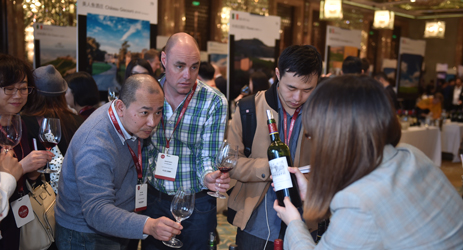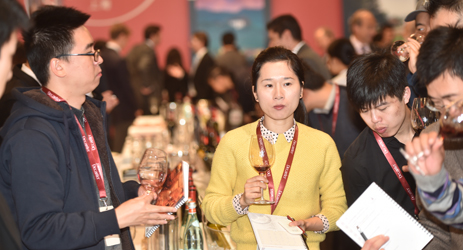At a recent gathering, a friend of mine complained to me about an awkward conversation he (let’s refer to him as ‘Mr A’) had with another friend (let’s call him ‘Mr B’) when sharing some wines together.

Mr A’s profession has nothing to do with wine and is quite successful. Since he fell in love with wine two years ago, he has been studying hard and buying hard. Currently, he’s keen to preach the beauty of wine among people he knows, and encourage them to join the circle of wine lovers. For us wine professionals, this is something we’re happy to see and benefit from.
Mr B, however, is a hard-core baijiu (Chinese white spirit) lover. He prefers the heated atmosphere when drinking baijiu, rather than that of wine gatherings. He comes to wine gatherings simply because he doesn’t want to disappoint his friends. Sometimes he would even secretly bring a bottle of baijiu to these gatherings.
Mr A always suggests Mr B to give up baijiu and ‘convert’ to wine. And here’s the conversation they had:
B: What’s good about wine?
A: Wine is good for your health as it contains many beneficial substances, and reduces the risks of cardiovascular diseases.
B: Ah. Are you saying you’ve got to have some sort of disease to drink wine?
A: Well...
Clearly the communication between the two wasn’t smooth here. Although the little misunderstanding happened between two good friends and there were no hard feelings afterwards, just imagine the disappointment of the ‘wine preacher’.
Indeed—what is good about wine? For a market, which doesn’t have a tradition in producing and consuming wines, we do need a good reason to attract the consumers. That is the foremost question we need to answer when promoting wines in China.
The idea that ‘wine is good for your health’ created the first heatwave of wine consumption in the end of the last century. At that time, the most popular domestic products were dry whites and semi-dry whites, namely the half-dry Muscat from producer Dynasty and the semi-dry Dragon Eyes (Long Yan grape) from Great Wall. These two were followed by Riesling and Chardonnay made by Huadong Winery.
These white wines were even picked up by a few international critics at that time; however, it was red wines that became the mainstream overnight.
The reason behind that was simple—the widely believed idea that there’re more healthy substances in red wines than white.
If that is the case, can wine be seen as a health supplement? Of course not. Scientific research has already discovered potential health hazards caused by by-products of fermentation. Even if we ignore that, the alcohol itself is a double-edged sword to consumer’s health. Therefore, whenever I teach my students about wine and health, I always point out both the positive and negative influences.
Now going back to my friend Mr A—‘how did you fall in love in wine?’ I asked the successful businessman.
‘If you think about it, it’s actually not that long,’ he said.
‘When I was working hard to launch my business, now and then I had opportunities to drink wines. I have also bought expensive wines for clients and partners. However, I don’t remember much of those wines, let alone liking them.’
‘In recent years, we have gradually built up a good team and the business is getting on track. I was much less stimulated by my job, sometimes I even felt like that the wind was taken out of my sails—until one day, I stumbled into a wine tasting event. ’
‘It was a comparative tasting; I can still vividly remember the surprise when I realised that with the same vintage, same grape variety and same winemaker, even if the plots are just next to each other, the resultant wines can be very different from each other.’
‘I work in the high-tech industry, and always take great pride in the precision of our products. But I didn’t expect to see a product relying so much on nature to express the finest differences to such precision. I was very much impressed. That was the beginning of everything...’
So what exactly is good about wine? At least for those successful business people who enjoy the sense of accomplishment, the sensual challenges posed by the diversity of wines are exactly what they need. For older drinkers, however, health benefits may still be the top draw.
Translated by Sylvia Wu / 吴嘉溦
All rights reserved by Future plc. No part of this publication may be reproduced, distributed or transmitted in any form or by any means without the prior written permission of Decanter.
Only Official Media Partners (see About us) of DecanterChina.com may republish part of the content from the site without prior permission under strict Terms & Conditions. Contact china@decanter.com to learn about how to become an Official Media Partner of DecanterChina.com.











Comments
Submit